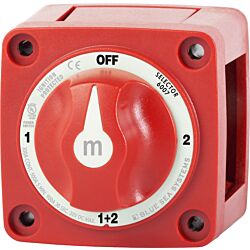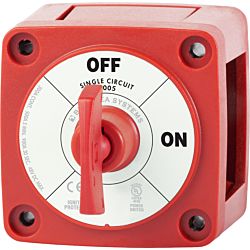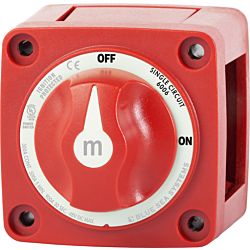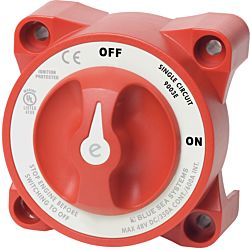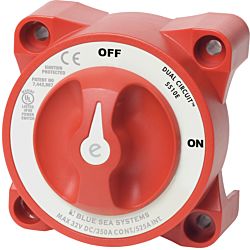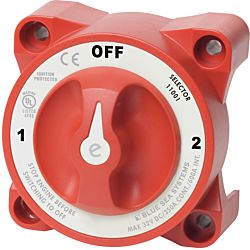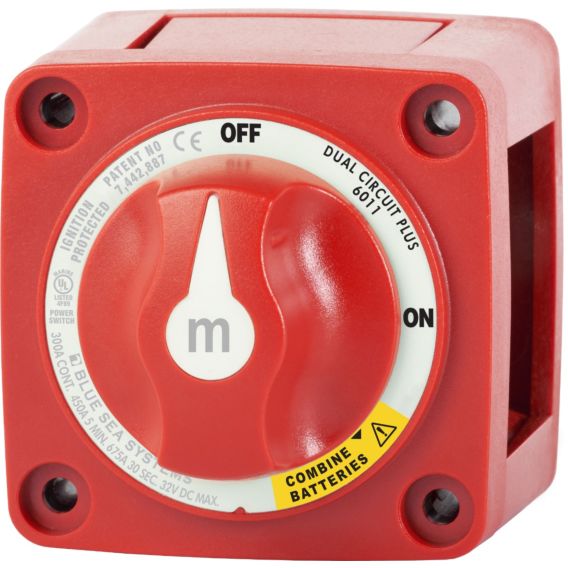
| Specifications | |
|---|---|
| Switch Type | Dual Circuit Plus* |
| Color | Red |
| Switch Positions | 3 |
| Battery Combine | Yes |
| Alternator Field Disconnect** | No |
| Maximum Voltage | 32V DC |
| Stud Size | 3/8" |
| Terminal Stud Torque | 120 in-lb (13.56 Nm) |
| Continuous Rating*** | 300A |
| Intermittent Rating**** | 450A (5 min) |
| Cranking Rating 30 sec***** | 675A per circuit |
| Battery Inputs | 2 |
| Cable Clearance For 4/0 AWG Cables | 1.12in (28.45 mm) |
| Cable Size to Meet Ratings | 4/0 AWG (120mm²) |
| Mounting Holes | Accept #10 Screw |
| Stud Material | Tinned Copper |
| Stud Torque | 120 in-lb (13.56 Nm) |
| Terminal Stud Size | 3/8" - 16 (M10) |
| Weight | 0.80lb (0.36 kg) |
*Simultaneously switches two isolated battery banks or circuits. May be used to switch the positive and negative conductors for required applications
**Alternator Field Disconnect protects the diodes in the alternator in the event of the switch being switched to the OFF position while the engine is running. If the AFD is nor used to protect the alternator, an LED can be connected to the AFD terminals to indicate when the battery switch is in any position but OFF.
***The maximum current a switch is designed to conduct for an indefinite period.
****The maximum amount of current a switch is designed to carry for a minimum of a designated period of time.
*****Normally associated with 'cranking current' which is the current required by the starter circuit prior to engine starting. The cranking current varies significantly during the starting cycle. Initially, there is a large surge of current required to overcome the inertia and compression of the engine. This surge can be two to four times the average cranking current. Once the engine is turning there are peaks and valleys as the pistons go through the compression and exhaust cycles. The cranking current rating is used for sizing batteries, cables, and battery switches.





